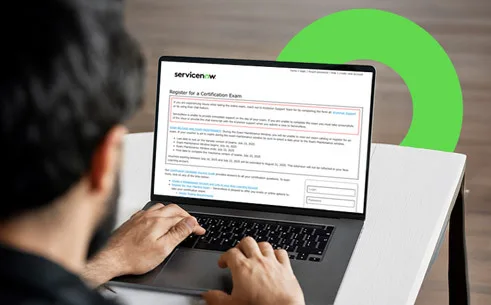Table of Contents
Have you ever heard of Salesforce? It’s the king of CRMs, helping us manage their relationships with customers like royalty. The Salesforce Ecosystem boasts a vibrant landscape of roles, with two key figures standing out: the Salesforce Administrator and the Salesforce Business Analyst.
Both play crucial roles in ensuring the platform runs smoothly and contributes to business success, but their paths diverge significantly.
Which one is the perfect fit for you? This blog breaks down the differences between Admin and BA, helping you decide whether you’re destined to build the platform or bridge the gap between business and tech. Buckle up as we delve into the depths of these two fascinating roles!
Who are Salesforce Administrators?
Think of them as the platform’s technical wizards. Salesforce Admins are responsible for the day-to-day maintenance and configuration of the system. They ensure a smooth user experience, data integrity, and optimal performance.
In short, Salesforce Admins are the behind-the-scenes heroes who provide our Salesforce mansion with welcoming and sufficient space for your business to thrive. They love technology, problem-solving, and making things work like a well-oiled machine.
Want to know more about what exactly they do, the skills they need, and the opportunities that await? Learn Salesforce Admin to build expertise in managing and optimizing the platform effectively. Stick around because there’s much more to explore in the fascinating world of Salesforce Admins!
Role and Responsibilities
Salesforces’ significant roles and responsibilities in their profile are briefed below for your reference. These will be the daily tasks for you if you choose this path.
- Customization: Building custom fields, workflows, and automation rules.
- User Management: Creating and managing user accounts, permissions, and roles.
- Data Management: Maintaining data accuracy and integrity, importing/exporting data.
- Troubleshooting: Resolving technical issues and maintaining system uptime.
- Reporting and Analytics: Generating reports and dashboards to track performance.
- Training: Providing user training and technical support.
Key Skills Required to Become a Salesforce Administrator
Salesforce Administrator is a multi-faceted role involving – customizing the Salesforce platform to optimize business workflow and processes, setting up platform specifications, and managing data. Here are some Salesforce Administrator key skills required for this role.
- Business analysis and attention to detail.
- User and Security management.
- Process automation and product management through the platform.
- Data and change management.
- Designer and Learner mindset.
- Effective communication and problem-solving skills.
Certifications for Salesforce Administrators
Although certifications are not mandatory, they can validate your existing skills and help you climb the career ladder. For Salesforce Admin professionals, these are some valuable certifications.
- Salesforce Certified Administrator
- Salesforce Certified Advanced Administrator
- Salesforce Certified Platform App Builder

Who are Salesforce Business Analysts?
A Salesforce Business Analyst bridges the business and technology worlds in a Salesforce implementation. Salesforce Business Analysts analyze business processes, translate requirements into technical specifications, and ensure the platform aligns with business goals.
The Salesforce Business Analyst is the glue that holds a successful Salesforce implementation together. They are essential for ensuring that the system meets the needs of the business and that it is used effectively.
Role and Responsibilities
Below is a summary of some of the primary functions and duties that Salesforce Business Analysts have. If you go down this path, these will be your everyday responsibilities.
- Requirements gathering and analysis: Understanding and translating business needs into functional specifications.
- Process optimization: Identifying areas for improvement in business processes.
- Solution design: Working with admins and developers to design and implement Salesforce solutions.
- Change management: Guiding users through adoption and training.
- Performance monitoring and reporting: Tracking the effectiveness of Salesforce solutions.
Skills Required to Become a Salesforce Business Analyst
Salesforce Business Analysts wear many hats – analyzing business processes, translating those needs into precise specifications for the Salesforce system, communicating effectively with tech wizards and business stakeholders, testing and validating the results, and guiding users through the new system. Here are some key skills they must possess.
- Strong business acumen and understanding of industry best practices.
- Excellent analytical and problem-solving skills.
- Communication and collaboration skills for interacting with stakeholders.
- Proficiency in data analysis and visualization tools.
- Project management skills and ability to prioritize tasks.
Read More:
Essential Skills to Seek Your Career as a Business Analyst
Certifications for Salesforce Business Analysts
Certifications can certify your current skills and help you advance in your job, even though they are not required. These are some helpful certifications for people working as Salesforce Business Analysts.
- Salesforce Certified Business Analyst
- Salesforce Certified Sales Cloud Consultant
- Salesforce Certified Service Cloud Consultant
Salesforce Admins and Business Analysts are in high demand, offering diverse and exciting opportunities across various industries. Here’s a glimpse into their job landscapes

Job Opportunities for Salesforce Administrator
There are various career profiles that a Salesforce Administrator can explore once they have some experience in working with the Salesforce platform. We have divided these opportunities based on technical and business-oriented needs.
Technical Roles
- System Administrator: Manage and maintain the Salesforce platform, configure features, and troubleshoot issues.
- Implementation Specialist: Work on deploying Salesforce for new clients, customizing workflows, and data migration.
- Developer: Build custom applications and integrations using Salesforce tools and languages like Apex.
Business-Oriented Roles
- Salesforce Analyst: Analyze data and reports, identify areas for improvement, and recommend optimizations.
- Salesforce Consultant: Advise businesses on best practices for using Salesforce to achieve their goals.
- Sales Operations Specialist: Support the sales team by automating processes and managing data within Salesforce.
Job Opportunities for Salesforce Business Analyst
A Salesforce Business Analyst has a vast pool of opportunities waiting for them. The possibilities for career progression are impressive, and you can pursue these after a few years of experience as a Salesforce Business Analyst and earning some applicable Salesforce certifications.
Consulting and Implementation
- Salesforce Business Analyst: Analyze business requirements, translate them into technical specifications, and manage project implementation.
- Salesforce Solution Architect: Designed and architected complex Salesforce solutions to address specific business challenges.
- Change Management Consultant: Guide users through adopting and using new Salesforce systems.
Internal Roles
- Business Process Analyst: Analyze and optimize internal business processes using Salesforce.
- Data Analyst: Analyze Salesforce data to identify trends, measure performance, and generate reports.
- Product Owner: Define the roadmap for new Salesforce features and ensure they meet business needs.
Overall, both paths offer excellent job prospects and career growth potential. The key is identifying your strengths and interests, choosing the role that aligns with your goals, and continuously developing your skills through certifications and experience.
Read More:
Salesforce Business Analyst Salary Guide for 2024
Choose Your Fit
Whether you decide to go for Admin or Business analyst both are necessary for a successful Salesforce implementation and cater to different skills and passions. So, find the path that aligns with your strengths and goals. Here’s a breakdown to help you decide:
Choose Salesforce Admin if
- You love tinkering with technology and customizing systems.
- You have a knack for problem-solving and enjoy fixing technical glitches.
- You appreciate clear organization and data accuracy.
- You have strong attention to detail and enjoy building workflows and automation.
Choose Salesforce Business Analyst if
- You see the bigger picture and enjoy translating business needs into actionable solutions.
- You have strong analytical and communication skills to bridge the gap between business and technology.
- You’re passionate about process improvement and optimizing workflows for efficiency.
- You like collaborating with stakeholders and driving projects towards successful outcomes.
Ultimately, the better role is the one that excites you more and allows you to leverage your unique skills and interests. Remember, both paths lead to fulfilling careers in the exciting world of Salesforce, so choose the one that resonates with your soul!
Here are some additional factors to consider while making the decision:
- Current skills and experience: Do you have a technical background or strong business acumen?
- Learning style: Do you prefer hands-on technical work or strategic planning and analysis?
- Career goals: Do you want to focus on technical expertise or become a bridge between business and technology?
Remember, these roles can be complementary. Many admins transition to BA roles with experience, and vice versa. The Salesforce ecosystem offers endless opportunities for growth and development, so keep learning, keep exploring, and keep climbing!

Conclusion
Both Salesforce Admins and Business Analysts are vital cogs in the Salesforce machine. Choosing between them depends on your career aspirations. If you thrive in technical details and enjoy maintaining a system’s smooth operation, the Admin path might be your calling.
If you’re passionate about understanding business needs and translating them into impactful solutions, the BA role could be your perfect fit. Ultimately, the choice is yours. So, explore your strengths, assess your interests, and embark on your exciting Salesforce journey!
Join our newsletter: Get daily update on Salesforce career insights & news!
Join Now!
















